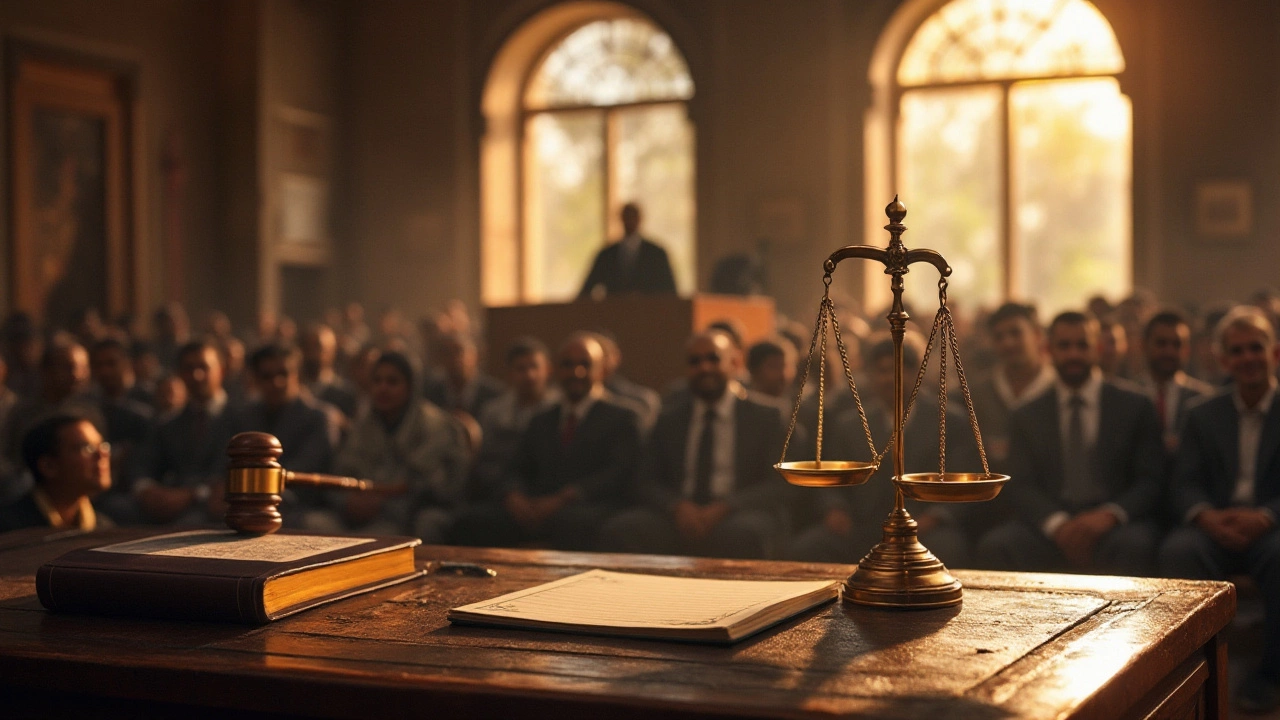Personal Injury: What You Need to Know and How to Get Help
If you’ve been hurt in a crash, a slip, or any accident, the first thing on your mind is probably the pain – not the paperwork. But the legal side can make a big difference in covering medical bills, lost wages, and that intangible "pain and suffering" you feel. This guide cuts the jargon and gives you straight‑forward steps you can take right now.
First, treat the injury like any other emergency. Get medical attention, keep every report, and note how the injury affects your daily life. Doctors’ notes, hospital bills, and even photos of the accident scene become your evidence later on, and they’re the backbone of any claim.
Proving Damages in a Personal Injury Claim
Courts don’t pay for feelings; they pay for proof. To show you’ve suffered, gather three types of evidence. Medical records verify the diagnosis, treatment, and future care needs. Financial documents like pay slips, tax returns, or a letter from your employer prove lost income. Finally, personal statements – a diary of how the injury limits you – help the judge understand pain and suffering.
Our post “What Evidence Do You Need to Prove Damages?” breaks this down with checklists and real‑life examples. Follow it step‑by‑step, and you’ll avoid the common mistake of submitting vague statements that get tossed out.
When you calculate compensation, think beyond the bill. Courts often add a “multiplier” for pain and suffering based on the severity of the injury and the impact on your life. The higher the multiplier, the larger the settlement. Knowing typical ranges – like those outlined in our article on “Understanding Typical Pain and Suffering Amounts” – gives you a realistic target.
Choosing the Right Personal Injury Lawyer
Not every lawyer specializes in personal injury, and experience matters. Look for an attorney who has handled cases similar to yours – car accidents, workplace injuries, or medical negligence. Check their track record: how many settlements or verdicts have they secured?
Our salary breakdown for personal injury lawyers in India (“What Personal Injury Lawyers Earn in India”) shows that top performers often charge a contingency fee of 20‑30% of the recovery. That fee aligns their interest with yours: they only get paid if you win.
Before signing, ask for a clear fee agreement, an estimate of case duration, and a timeline for milestones like filing the claim, discovery, and potential settlement talks. A good lawyer will explain everything in plain language and keep you updated.
Remember, communication is key. If your lawyer disappears for weeks or uses legal slang you don’t understand, it’s a red flag. You deserve an advocate who explains the process, answers your questions, and acts quickly on deadlines.
Finally, don’t overlook the practical steps after you hire a lawyer. Provide them with all the evidence you collected, stay organized, and follow medical advice to avoid worsening the injury. The stronger your file, the better your chance of a fair payout.
Personal injury claims can feel overwhelming, but with the right facts, solid evidence, and a skilled lawyer, you can turn a painful event into a manageable financial recovery. Keep this guide handy, refer back to our detailed posts for deeper dives, and take control of your claim today.
Physical Injury vs Personal Injury: Key Legal Differences Explained
Discover how physical injury and personal injury differ, legally and practically. Learn what counts, your rights, and how claims for compensation work.
Understanding Personal Injury Coverage: Essential Insights
Personal injury coverage serves as a key component in safeguarding individuals from financial burdens following an accident. It involves insurance that covers medical bills, lost wages, and sometimes legal expenses. Knowing the specifics of what your policy includes is crucial for personal protection. This article clarifies what personal injury coverage generally entails and highlights noteworthy aspects often overlooked.
When an Insurance Company Takes Legal Action Against You
Ever wondered what happens if an insurance company decides to sue you? This article delves into the reasons why an insurance company might take such action, what the legal process entails, and how you can protect yourself. Learn about the implications of such a lawsuit and tips to manage the situation effectively. A must-read if you're dealing with insurance claims and concerned about your legal standing. Discover how being proactive can make all the difference in these challenging scenarios.
Earnings of Leading Personal Injury Defense Attorneys
Top defense attorneys in the personal injury sector command impressive salaries due to their expertise and track record of successful cases. Their earnings often reflect their proficiency in various legal domains, reputation, and geographical location. Beyond salary, many lawyers benefit from bonuses and profit-sharing arrangements. Understanding the financial aspects of this legal specialization is crucial for aspiring attorneys seeking a lucrative career.
Understanding Personal Accident vs. Personal Injury: Key Differences for Legal Aid
Accidents and injuries can happen unexpectedly, leading to financial and emotional distress. Understanding the distinction between personal accident and personal injury is crucial, especially when seeking legal assistance and insurance claims. This article explores the fundamental differences, benefits, and implications of each, offering valuable insights for those needing guidance. It provides practical tips on navigating claims and selecting appropriate coverage for various circumstances.
Understanding the Black's Law Definition of Personal Injury
Personal injury law is complex, requiring a clear understanding of legal definitions and terms used in various legal contexts. This article delves into the definition of personal injury according to Black's Law Dictionary, explaining its relevance in legal proceedings. Discover how this definition shapes cases and the nuances that impact factors like compensation and liability. With practical insights and easy-to-understand explanations, this guide provides clarity for those navigating the intricacies of personal injury law.





